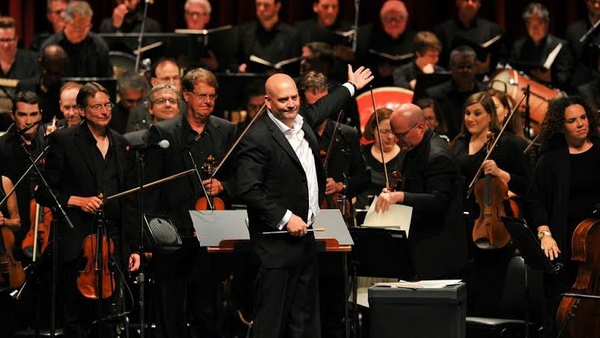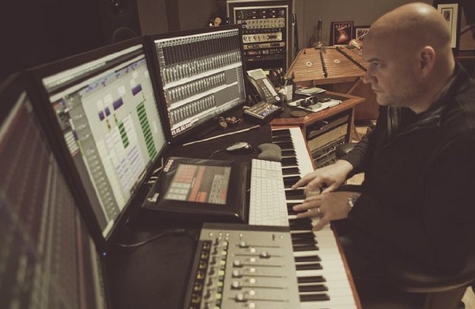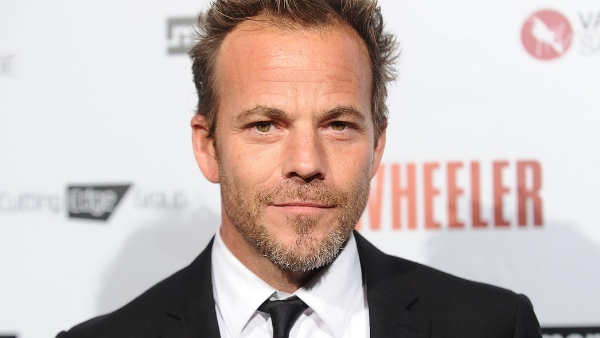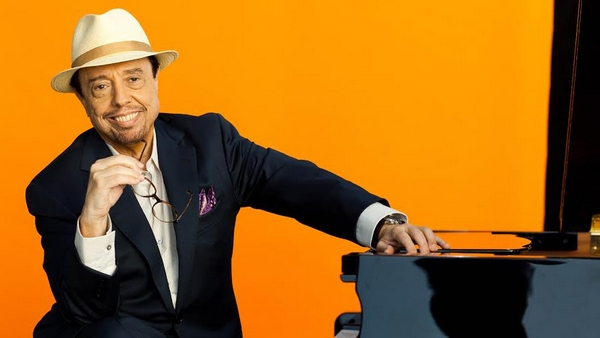 Emmy Award-Winner Trevor Morris is a prolific composer, scoring for both film and television. He received his 5th Emmy nomination in 2013 for “Outstanding Music Composition for a Series” (Original Dramatic Score) for Showtime’s The Borgias, making him the most Emmy-nominated Composer of the last three years.
Emmy Award-Winner Trevor Morris is a prolific composer, scoring for both film and television. He received his 5th Emmy nomination in 2013 for “Outstanding Music Composition for a Series” (Original Dramatic Score) for Showtime’s The Borgias, making him the most Emmy-nominated Composer of the last three years.
The Canadian composer was born in London, Ontario, a few hours outside Toronto. Morris attended Fanshawe College’s “Music Industry Arts” program, Canada’s most prestigious school for recording and production. Graduating at the top of his class, he moved to Toronto to work in music production. Morris eventually turned away from production and began to focus full-time on composing music for television commercials. In 1999, he moved to Los Angeles to score for films and television and has collaborated with some of the best directors in the business, including Jerry Bruckheimer, Antoine Fuqua, Neil Jordan, and Tony and Ridley Scott.
Most recently, he was tapped to compose music Relativity’s newest release Brick Mansions, starring RZA and the late Paul Walker. He has also returned to score the second season of Vikings, History Channel’s highly successful series. Morris is also currently scoring the music for EA and Bioware’s videogame Dragon Age:INQUISITION, which arrives on October 7, 2014. Enjoy the highlights from our time with accomplished composer Trevor Morris.
GST: Video games grow in scope and complexity at a rapid pace. Games take days, sometimes weeks and months to complete because there’s increased interest in multi-player and/or free roam gameplay. So how does the modern video game expectation and development of these expansive narratives affect your job? How do you go about creating music to something that can be entirely free-form and a nearly never ending story?
TM: Video game music is a unique thing that way, being interactive and all. We devise levels and layers that can be independently triggered by game play to create more combinations. I am writing about two hours of music for my current game, but in reality it would feel more like eight or 10 hours I’d guess.
GST: I’ve been told that writing music for video games is harder than writing for films because you must plan for so many outcomes the gamer “may” experience. When you’re asked to compose music for these limitless worlds, is it difficult to see the finish line when there are so many variables in the development process? Also, when do you usually become attached?
TM: Games take a long time, like a year or two, so I get attached to the project very early. Even though it seems open-ended musically, it is still narrative…still storytelling. So in that way, it’s similar to TV and movies, and it makes it less intimidating to attack the beast.
GST: Since so many games and films these days are going for that “epic” sound with, if applicable, a slightly gothic feel. What kinds of discussions do you and the developers have to make your project unique? Is there anything you avoid because it’s deemed trendy?
TM: I try not to follow trends. It’s never fruitful in my experience. Epic and Gothic have been around a long time, think Wagner, know what I mean? I have my own sound that emerges from the way I write and the hybrid elements I like to incorporate.
GST: The Tudors, Immortals, and recently Vikings and Reign – how do you approach these so-called historical projects? Also, how is your writing process on an on-going series different from a film with a set run time?
TM: I try to absorb the music of the era and then forget about it. It is more influential to me in a DNA kinda way, as opposed to a literal kind of thing. Writing for an on-going series is always a great chance to develop thematic material, which I love to compose.
It’s true in films as well, but it has a two-hour life, whereas TV can be 40 hours of the same subject matter.
GST: Well, regardless of format, is it easier or harder to write for the show when there are many other period specific or fantasy based properties out there?
TM: Not to me, or not for me I guess I’d say. There are other period or fantasy scores out there that I may have approached differently. But that’s the beauty of music … it can be approached from so many different angles. But to answer your question no, it’s not something that crosses my mind.
GST: Do you have a time period or genre of film/TV you find most thrilling or just glad to revisit? Or, on the flip-side, is there something you want to try but haven’t yet?
TM: I really want to do a Sci-Fi / space movie, it’s my favorite genre. I’m hoping to get my dream project at some point in my career. If I could write scripts or screenplays, I’d write a space movie just so I could score it!
GST: You have a lot of TV show themes to your credit. What is it about TV that keeps you taking more and more projects?
TM: TV is just so good right now, which wasn’t always the case. You have a great chance of turning on the TV right now and finding a great, killer TV show.
GST: Whether you work on an action film like Olympus Has Fallen and Brick Mansions or any number of similarly themed TV dramas, do you think that things inevitably tend to become derivative, if they are more or less the same subject matter, because that’s what the audience expects, or because it’s what works?
TM: Bit of both I guess. Action scenes need propulsion and action music. Sometimes it’s producer or director driven and they really want a score that sounds like some other score they’ve heard before, which is always a tough spot to be in. I will, however, try to give them the score they “never knew they wanted,” which is part of the challenge I love about my job.
GST: I’ve spoken to some composers who prefer not to conduct, but others just really love doing it. Why do you feel it’s important to take role on yourself, and what makes it so enjoyable?
TM: I love conducting and do it as much as possible. I get to get out of my dark room and be part of the band again. The players are there to play my music, and I think they play better with me on the podium.
GST: Aside from what we can see on IMDb, what else are you looking forward to this year or next? Either in the studio or out of it?
TM: A few new things, but I tend to not talk about them too much in advance. I’m superstitious that way!
GST: Fair enough *laughs* Well this last question is more for my interest but I think the readers might find value in your response. I see you were credited with being James Newton Howard’s assistant when he wrote the score for Atlantis: The Lost Empire. I just adore that score and James as an artist, so I was curious to hear some stories about the project. What were your responsibilities and how close did you work with James?
TM: JNH was my first gig in LA and he was, and still is, my singular Film Music idol. I hate that word, but it’s sort of appropriate here. His writing has an elegance and intelligence to it, and is often hybrid in nature without being so for its own sake. He is really “The Man” to me. Anyhow, my first gig with him was just doing studio tech stuff, and engineering (I was an engineer in a previous life). I asked him to hire me full-time, but at that time he didn’t have anything for me. We’ve stayed friends over the years since.
Thanks to Trevor for his time. You can hear his work on Vikings on the History Channel and the upcoming Dragon Age: INQUISITION this October. Morris’ music has most recently been heard on Relativity’s BRICK MANSIONS, NBC’s DRACULA, The CW’s REIGN, and ABC’s BODY OF PROOF. Past film and TV show music credits include Film District’s OLYMPUS HAS FALLEN; Relativity’s IMMORTALS; ABC’s 666 PARK AVENUE; SyFy’s ALPHA’S; NBC’s THE FIRM; Fox Atomic’s THE HILLS HAVE EYES II; NBC’s E-RING; Columbia and Warner Bros pictures’ SOMETHING’S GOTTA GIVE; Anchor Bay’s BEAUTIFUL BOY; NBC’s CHASE; CBS’ MOONLIGHT; CBS’ MIAMI MEDICAL; NBC’s KINGS; FOX’s JUSTICE; and Interactive Games such as EA’s NEED FOR SPEED: CARBON and COMMAND AND CONQUER.




